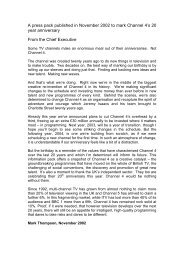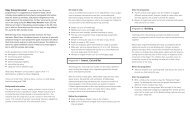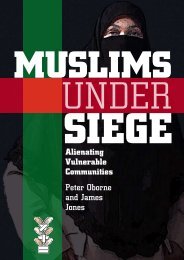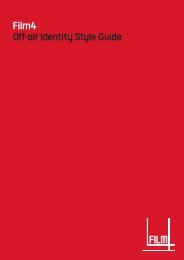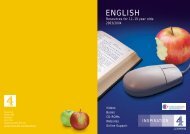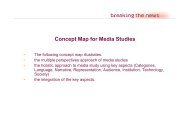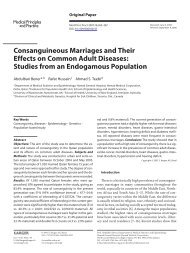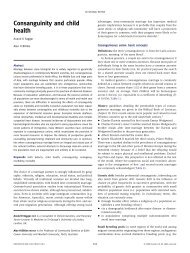Create successful ePaper yourself
Turn your PDF publications into a flip-book with our unique Google optimized e-Paper software.
PROGRAMME<br />
4<br />
22<br />
Ti Be <strong>Yer</strong>sel<br />
Programme outline<br />
In this programme Scots is used in contemporary<br />
writing. Mary McIntosh reads an alphabet game in Scots.<br />
Janet Paisley recites the poem ‘Skelp’. Sheena Blackhall<br />
talks about Scots words and recites her poem ‘The<br />
Check-Oot Quine’s Lament’ while pupils from Dunblane<br />
Primary School are shown re-labelling supermarket goods<br />
in Scots.<br />
The Proclaimers sing ‘Throw the R Away’ and discuss<br />
their experiences of being a Scots pop group. Matthew<br />
Fitt recites a poem about the Proclaimers while criticising<br />
stereotypical attitudes to Scots.<br />
We visit Portobello High School, where pupils and<br />
teacher Alan Keay talk about the school Scots magazine<br />
Porty Blethers. Pupils deliver a rap called ‘D & C’s Guide<br />
to Scotland’.<br />
Researcher Alisdair Allan explains how he sat all his<br />
degree exams in Scots.<br />
We go to Ayrshire, where Billy Kay and pupils from Park<br />
Primary School, Stranraer visit the cave of Sawney Bean,<br />
a cannibal from the past. A pupil recites ‘The Ballad of<br />
Sawney Bean’ by Lionel McLelland.<br />
Learning outcomes<br />
Pupils should:<br />
● practise using a Scots dictionary and learn about<br />
glossaries;<br />
● learn that, at the moment, the Scots language, unlike<br />
English, is not standardised;<br />
● consider the use of Scots in modern contexts;<br />
● learn more about modern Scots literature;<br />
● appreciate that extra Scots vocabulary enhances rather<br />
than restricts their language store.<br />
H A U D Y E R T O N G U E<br />
Leid leet<br />
foonert (freezing)<br />
trauchled (exhausted)<br />
forfochen (tired)<br />
skite (swipe)<br />
gansie (jumper)<br />
scunnert (annoyed)<br />
pieces (sandwiches)<br />
tatties (potatoes)<br />
bubblyjock (turkey)<br />
clabbiedoos (mussels)<br />
haddies (haddock)<br />
mingin (filthy)<br />
cannae (cannot)<br />
glaikit (stupid)<br />
Before viewing<br />
Teachers might prompt pupils to list all the Scottish<br />
writers they have read or heard of. Most pupils will have<br />
heard of, or studied, at least the work of Robert Burns.<br />
During viewing<br />
Pupils could note down any names of Scots writers<br />
that are mentioned in the programme. If possible, they<br />
could add the names of any songs or poems.<br />
After viewing<br />
Listening and talking<br />
barrie (brilliant)<br />
deek (a look)<br />
schule (school)<br />
pecht oot<br />
(out of breath)<br />
wabbit (tired)<br />
doitit (mixed up)<br />
scabbyheidit<br />
(a head with scabs)<br />
aul claes an parridge (old<br />
clothes and porridge)<br />
midden (a mess)<br />
Pupils could discuss the list of writers compiled<br />
before and during the programme. Do they now know<br />
the names and works of some other writers?<br />
Discuss whether pupils would like, as suggested by<br />
the pupil from Portobello High School, to sit exams in<br />
Scots. Should there be a choice of English or Scots to<br />
study? Discuss the Scots opportunities in Higher Still for<br />
studying Scots literature and language and for writing in<br />
Scots.<br />
Would pupils like to see supermarkets labelling in<br />
Scots as the children at Dunblane Primary School did?<br />
In the programme people spoke about their language<br />
being diminished if they lost their Scots vocabulary.



